
-Can you give us a brief introduction and background?
MN: After graduating from music college, I have been a piano teacher in a music class for about 20 years.-Have you ever attended domestic and international seminars?
MN: For the past few years, I have also taken chamber music seminars and sensei master class lessons at the Moscow Conservatory in Japan.It was my first time abroad.-What made you decide to go abroad?
MN: Knowing the Prague Summer Academy, there was a place to study like this, and there was no age limit, and there was a frame for chamber music.I have been studying chamber music for the past few years, and I wanted to be able to enjoy chamber music.It was also great that the co-stars could be prepared by the seminar side.-How many participants were in the class?
MN: I think chamber music is about one more pair with me.Overall, there were just under 20 people.-What was the content of the workshop?
MN: On the first day, practice time was allotted immediately after orienteering.Chamber music has 2 hours of practice and piano solo has 3 hours of practice.I practiced every day.From 9 am to 8 pm, reservations were made in the order of earliest.-How was the quality of the piano?
MN: The practice room assigned to me was Yamaha. Petrov was in another practice room that my roommate used only once.Petrov found it very difficult to control the pedals.My roommate also said, "It's hard to play."-It's a difference between manufacturers.
MN: Yes.There was a Fazioli in the room where I took the lesson.It was fun to be able to play various pianos at once.-What kind of people were the members of chamber music (piano trio)?
MN: I heard that the violin is a Japanese living in the area and belongs to the local orchestra.The cello is from Czech and is playing for free.-How was it actually matched?
MN: No, I'm really glad I participated in this summer academy.What I mean is that I had time to meet without any meetings at the beginning, but when I met at that time, I was very crazy.It was different from what I had prepared before I went, and what the violin and cello felt about the song they were about to play.-What was your song chosen for?
MN: This is Arensky's piano trio.The sense of speed was also quite different.My sensei, who I'm studying, told me to be careful because playing a rather beautiful song slows down the speed.With that kind of mindset, the violin felt a wider range of speed than I did.I was worried about what would happen to the first lesson, but once the lesson started, sensei at the Summer Academy gave advice to each player so that the three could gradually play with the same idea. I was relieved.-It's an experience that you don't often meet with people who have completely different ideas.
MN: That's right.The ensembles I had participated in in Japan were usually professional players, so I was helped without realizing it.But in this case, it was a great learning to understand that this kind of thing would happen if one of the three people was on an equal footing rather than in a position to teach.-What was the language of the lesson?
MN: The language is Czech.A Japanese person living in the area provided an interpreter.-You took a lesson from two sensei, right?
MN: Yes, the first half was the piano and the second half was the cello sensei.I played the piano three times and the cello twice.-Are you both Czech?
MN: Yes.What you said is different between the sensei of the piano and the sensei of the cello, and I have the impression that the sensei of the piano is required to be very accurate.Only with that accuracy can you communicate with the other party in terms of performance.However, in the second half, when I went to the cello sensei, I was told, "Do it more freely!"There was a conflict between the two sensei, what should I do ...After the lesson was over, I was tired all day long, and there were days when I was rolling in the room.-It was hard, wasn't it?
MN: But while I was rolling, I needed both the sensei of the piano and the sensei of the cello, and I could conclude that it would be good if both could be well integrated. I feel better.I was worried at first, but I'm glad I was able to reach my own conclusions.-It was good.Is the "accuracy" mentioned earlier a feeling of being faithful to what is written in the score?
MN: Yes.I want to be able to keep the speed, and I think that the feeling of rhythm is clear among the three people by keeping it.In chamber music, the leading instrument changes depending on the part, so sensei told me that it is important to be able to properly signal the other party.-What is the big difference from the lessons in Japan?
MN: I think it was the first lesson at the Prague Summer Academy that I was able to hear about "each part has a role depending on the part" and specifically "the idea of chamber music".-What does "concrete" mean, for example?
MN: I think that I talked about the lesson not in whole but in part, but in this part, the stringed instruments listened to the "bass" of the piano anyway. Therefore, if it is not clear, it is difficult for stringed instrument people to come out or play.From my point of view, it's not a piano solo, so I have a feeling that only the piano shouldn't make a loud sound, and maybe my original volume isn't enough for three people to match, "Bus. It may have been in a state where the "tick" was not transmitted.-So that's it.Did you have a place to announce?
MN: Yes.It was the hall of the Prague Summer Academy on the last day.-How much capacity did you have?
MN: I think it's about a salon on a scale.I think the whole building in Prague has a high ceiling, isn't it?So, it sounds great even if it doesn't sound so hard.-Is the feeling of playing different from that of Japan?

-How was it when you actually played it?
MN: In the process of taking the lesson, I felt blue and had various twists and turns, but in the end, the members had the same feelings, or they were able to play with the same idea. After that, I felt that I was listening to each other, and I enjoyed it at the end.Through this experience, I learned that when I was attending an ensemble seminar in Japan, I was helped by a stringed instrument player (sensei).It was a class that really made me realize.-It was good.Where did Prague go?How was the atmosphere?
MN: I went to the theater where Mozart's "Don Giovanni" was premiered by an acquaintance of the architect.The Czech country was not bombed during the war, so it seems that the building at that time remains as it is.So when you think of the old buildings of various styles as they are, it really feels like the time has stopped.I also like to see paintings, so I went to Mucha's museum.-How did you get to the museum?
MN: I used the tram, but at first I got lost and gave up and came back. The second time I moved after asking how to get there, but I couldn't figure out right or left again ...-You were moving the guidebook with one hand, didn't you?
MN: Yes.I saw a bookstore, so I asked him, but there were many people who couldn't speak English, so I asked them to teach me with gestures.Then I arrived at the Central Post Office, which was actually one of the places I wanted to go.I was able to go to the museum depending on the location of the post office.-Have you ever had a hard time traveling around Prague?
MN: The most difficult thing was that it was a stone pavement.This may be just me, but unlike asphalt, the stone pavement at my feet is not flattened, so I feel like I can take my feet off and I don't get tired (laughs).-How was your accommodation?
MN: It was a double room with a Japanese person.It looks like it was refurbished just before I used it, it was very clean andIt was a very brand new feeling.
-Is it a long time to share a room?
MN: That's right.I was a little nervous before I went to see what it was like, but the person who became a roommate is older than me and is a repeater.You said it was the 7th time, and you knew everything and taught me various things.-Did you have any inconvenience in your life?
MN: There is no inconvenience at all.It was very convenient to walk to the workshop venue in about 2 minutes.-How was your meal?
MN: Breakfast is a buffet and you can choose what you like.He prepared meals that were as different as possible every day.-Did you like it?
MN: Yes.The breakfast that was prepared was the most relaxing for me ... The strength of the seasoning was so light that the breakfast was relatively untouched, but when eating out, it's not all. However, there were some places where the taste was quite strong.-Did the strong saltiness mean that it was dark?
MN: Yes.I was a little surprised at first.When I said to other participants, "Czech Republic has a strong flavor!", He said, "This is to make you drink beer!" (Laughs)-How was the amount?
MN: There are many things that come out in Japan. Rather than asking for something alone, it was basically going and sharing with several people.-Returning to the class, did the class have an atmosphere that was easy for first-timers to attend?
MN: That's right.One of the coordinators of the Summer Academy in Prague was Japanese.The director is a local person, but I felt that he was very considerate of the participants.Also, I think there are many Japanese people who participate in the Summer Academy in Prague.Since you mentioned the 22nd and last day of the seminar this year, I think you may have the feeling that "Japanese people are like this."-How did you feel when you looked back on the seminar?
MN: I think that the Prague Summer Academy is a place where you are very considerate and take the position of participants.I think I was able to participate in a very good meeting.Local Japanese coordinators, directors, and participants who are willing to come all the way to Prague.I think I was really fortunate to meet wonderful people.In that sense, I'm glad I participated.-Do you think that studying abroad has been a harvest?
MN: Everything I experienced was a harvest, not just music, but of course music ... For example, if I was at a loss at a connecting French airport, a Japanese staff member would talk to me. When I couldn't find my suitcase after arriving in Prague, a Chinese person who was next to me by plane told me the location.With that kind of feeling, it was a study abroad program that was helped by various people.-What was the biggest difference between Japan and your study abroad destination?
MN: When it comes to music, the biggest difference is the difference in the space of the building.I think it was great that I was able to experience a large area with a high ceiling.After all, there is a church in Europe, so I often hear the sound of church bells, and I wonder if the composers who grew up and lived in such an environment were born while experiencing this kind of world. There are times when you can get rid of it.-Is there anything you think you should have done before studying abroad?
MN: It's still a word.All the participants were able to speak English better than I expected.Although my English is really unspeakable, I feel that I can use it to some extent, but I wish I could use English to the extent that I could speak a little more.-Finally, do you have a message for those who will study abroad in the future?
MN: If you feel lost, you should take the plunge.I think it's most precious to actually experience it.Therefore, it means that you cannot experience it unless you actually do it, so I hope you will experience it.-Thank you for your cooperation in the interview!



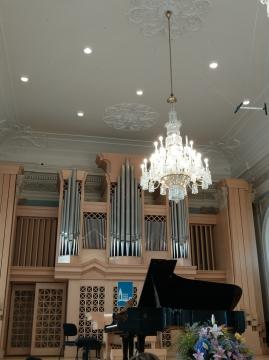

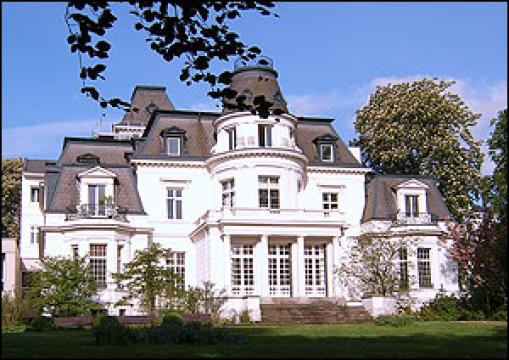
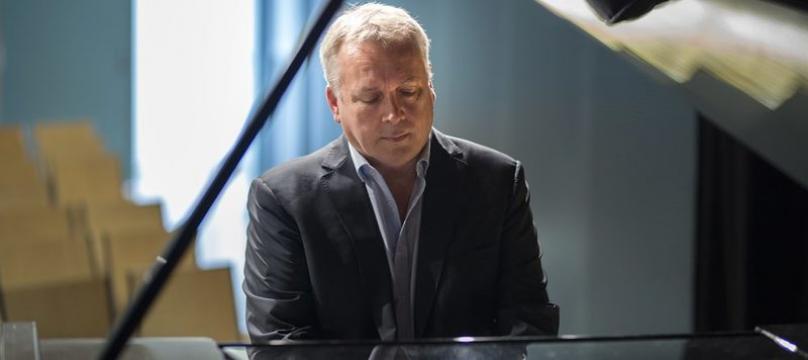
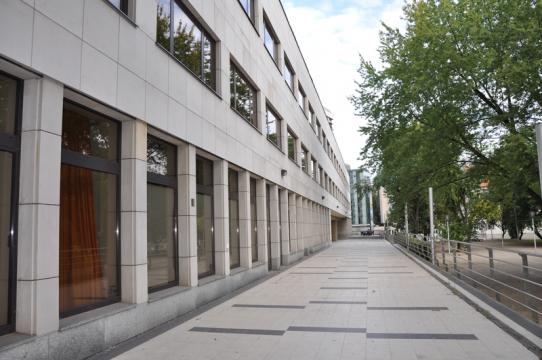
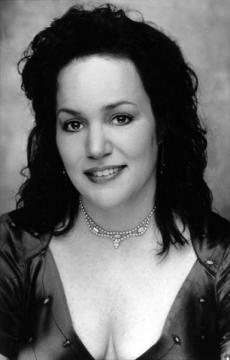


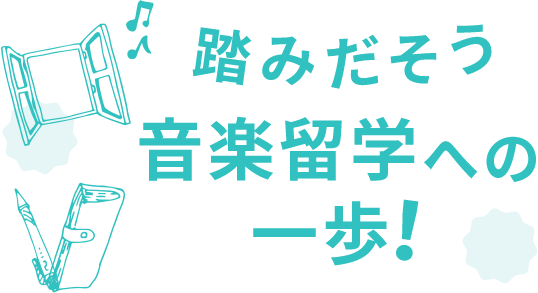
 Book a Counseling
Book a Counseling